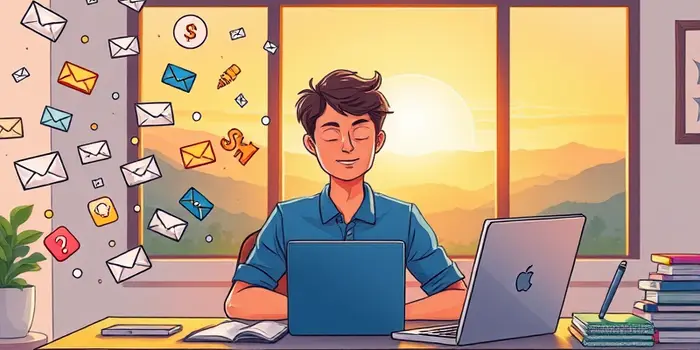
In an era of endless pings and pop-ups, it’s all too easy to let small interruptions derail your biggest ambitions. Every moment spent toggling between messages and minor tasks chips away at your capacity to achieve deep, lasting progress. Yet the path to true accomplishment lies in a subtle but powerful strategic shift away from reactive busyness toward purposeful, long-term work.
When teams and individuals break free from the tyranny of daily noise, they unlock potential far beyond what isolated efforts can achieve. The numbers confirm it: deep, focused work is not a luxury but a necessity for innovation, growth, and meaningful career advancement.
Distractions are more than nuisances; they carry a heavy price tag. On average, each employee loses about 720 hours per year to workplace interruptions. That time slip equates to a staggering $650 billion in annual losses for U.S. businesses. Even more alarming, workers spend an additional 127 hours just regaining focus after disruptions and 75 hours wrestling with unproductive emails.
Nearly 90% of workers face at least one distraction every day, and one in four endure more than six interruptions in a single workday. It takes over 23 minutes on average to refocus after each break in concentration—even though most people are interrupted after just 12 minutes of focused work.
Our collective attention span has plummeted in recent decades. In the early 2000s, the average human could hold focus for about 2.5 minutes; today that number stands at just 47 seconds. Adults now average only 8.25 seconds of attention before their minds wander, a decline from 12 seconds in 2000 and even less than a goldfish’s famed nine seconds.
This accelerated erosion of focus stems from pervasive digital overload. Continuous streams of notifications foster what experts call “continuous partial attention,” leaving us superficially engaged but deprived of the mental space required for true understanding and creativity.
Frequent task-switching doesn’t just decrease efficiency; it destroys momentum. Research shows that after every interruption, an “attention residue” lingers for over 20 minutes, making it nearly impossible to regain full concentration. About half of all work distractions are self-inflicted—voluntarily checking messages or allowing wandering thoughts to take over.
While responding to minor prompts feels urgent, it often has no real bearing on long-term success. The opportunity cost of endless interruptions is lost innovation, stalled progress on major projects, and diminished decision-making quality.
Organizations and individuals who guard their deep work windows consistently outperform those entangled in daily noise. By prioritizing substantial, strategic tasks over superficial demands, they achieve higher productivity and foster a culture of creativity and critical thinking.
Consider teams that block out dedicated focus time on calendars and disable non-essential notifications. These groups report measurable gains in project completion rates, heightened employee satisfaction, and a surge in breakthrough ideas. In personal careers, those who allocate structured periods for big-picture goals often experience faster advancement and more fulfilling accomplishments.
Transforming your work habits begins with intentional changes to your environment and mindset. Treat focus as a skill to be cultivated rather than an accidental byproduct of good intentions.
Leaders can model these practices by setting “do not disturb” hours and encouraging employees to signal when they need protected time. Awareness of self-inflicted distractions is equally vital—recognizing the urge to constantly check devices helps you resist it.
The daily noise of emails, alerts, and minor tasks may feel important in the moment, but true impact comes from relentless pursuit of significant goals. When you commit to consistent progress towards significant objectives, the compounding benefits will reshape your career and your organization.
By mastering your attention, you reclaim hundreds of productive hours each year, fuel deeper innovation, and craft a legacy grounded in meaningful achievement. Start today: identify your most crucial long-term outcome, protect the time it deserves, and watch as focused effort transforms small steps into monumental success.
References













